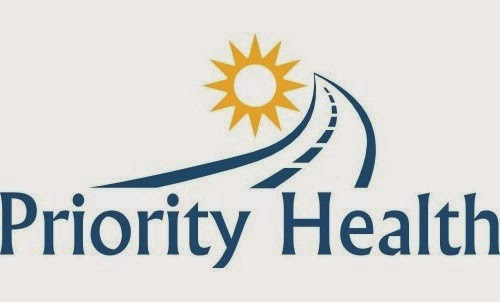Wednesday, September 3, 2014
Free Health and Wellness Webinar
A FREE Evolution of Medicine ONLINE summit. This may be of interest to many of my patients. Use the link below to register:
 https://www.saleeby.net
https://www.CarolinaHolisticMedicine.com
medical advisory board member UK's LDN Research Trust
https://www.saleeby.net
https://www.CarolinaHolisticMedicine.com
medical advisory board member UK's LDN Research Trust
Monday, September 1, 2014
NC Medical Board watches out for its people...
“For the benefit and protection of the people of North Carolina…”
 As you know, the Medical Board’s mission is to protect the public. One of the most important ways it does this is by intervening to protect unsuspecting patients from treatments that are outside accepted standards of care and, at times, risky.
As you know, the Medical Board’s mission is to protect the public. One of the most important ways it does this is by intervening to protect unsuspecting patients from treatments that are outside accepted standards of care and, at times, risky.This may not sound controversial, but it can quickly become so when we delve into specifics. In this article, I will give you my personal take on how the Board attempts to balance challenging and sometimes competing interests when considering cases that involve nonstandard treatments.
Medicine by its nature is constantly evolving and new treatments and modalities are developed on an almost daily basis. The best of these are hailed as innovations that extend and improve life – and some even live up to their promise. The worst are eventually denounced as snake oil that, at best, empty patients’ pockets while filling them with false hopes and, at worst, harm or kill them.
Often, though, things are not so black and white. Some cases the Board reviews involve treatments that are apparently without scientific basis, yet relatively benign and, at times, anecdotally effective. When reviewing these situations, Board Members must ask this important and difficult question: When should the Board interfere with a patient’s freedom to choose in order to protect them from financial exploitation or false hope when the potential for harm is low?
The HCG example
In 2013, the Policy Committee of the Board amended its position statement entitled, “The treatment of obesity,” to indicate that the Board does not consider human chorionic gonadotropin (HCG) to be an appropriate treatment for obesity. The decision, which the full Board approved, was based on two main factors: 1. The Board’s belief that there is no proven scientific basis for the treatment of obesity with HCG and 2. Some evidence of risks associated with the therapy.
Months after the amended position statement was approved, the Board reviewed a complaint regarding a licensee who prescribed HCG for weight loss. This prompted a reexamination of information about the treatment. And while nothing changed the Board’s view of the efficacy of this treatment, upon further review of the risks, the Board concluded that the potential for patient harm is not as significant as initially perceived. The Board voted to strike the language referring to using HCG for weight loss as inappropriate from the Board position statement.
It’s somewhat unusual for the Board to reverse course on an issue in such a relatively short period of time. But the case of HCG is an excellent example of the type of issue the Board is required to make decisions about on a regular basis.
Should patients be free to consent to treatments that we, as trained medical professionals, find to be entirely without scientific basis? Should patients and their medical providers have total freedom to decide what treatments are used? Or are some controls acceptable? For example, should the Board give its blessing for providers to give patients their treatments of choice as long as they are adequately informed that the care falls outside of accepted standards? How does risk factor into the Board’s obligation to protect? How much risk is acceptable for the patient to assume?
Treatment cost is yet another consideration. Current law gives the Board the authority to protect patients from financial exploitation by licensees. A review of cases over the years provides numerous examples of situations where the Board has stopped licensees from benefiting from the aggressive marketing of costly therapies of unproven clinical value. Should the Board always step in to protect patients’ pocketbooks? Only when large sums of money change hands? Only when there is no informed consent or there is a vulnerable patient?
The issues the Board considers go well beyond whether a particular weight loss treatment safely melts pounds. The Board has made difficult decisions in cases involving nonstandard treatments in the fields of oncology, infectious disease and mental health, just to name a few.
These decisions are never made lightly or easily. And, the Board is rarely of one mind at the outset of these discussions. At times, some Board members are strongly motivated to act to protect patients not only from physical harm or financial exploitation but also from the false hopes promised by a treatment in which the Board has no confidence. Others on the Board are inclined to stay out of such situations, provided the threat of patient harm is minimal. Regardless of Board members’ individual views, the NCMB employs the same objective framework when evaluating these difficult cases. At minimum, the Board weighs the following factors:
1. Does it work? In evaluating any case that involves clinical medicine, the Board considers accepted and prevailing standards of care and, in the specific instance of care that is experimental or otherwise unestablished, available evidence that demonstrates the treatment’s safety and efficacy. The Board acknowledges that many, many treatments and modalities are used successfully and on a routine basis without the benefit of placebo controlled double blind clinical trials. That said, we look to published research and authoritative consensus statements when considering any therapy.
2. What are the risks? All medical care, at the end of the day, is a balance between the potential benefits and the recognized risks. When considering the appropriateness of any treatment under review, the Board always considers known risks to the patient as well as information regarding potential benefits and clinical efficacy.
3. Is the cost exploitive? The cost of treatments under review is often an important consideration, particularly in situations where care may be outside accepted standards and/or those where care is not covered by medical insurance. In the past, the Board has taken action to intervene when it determines that licensees have exploited patients financially by recommending costly treatments that either don’t conform to the standard of care or have been used in an overaggressive manner.
4. Is the patient informed? As part of its review of any case involving experimental or nonstandard treatments, the Board carefully examines the licensee’s process for obtaining informed consent from patients. It is the Board’s position that any patient who is considering a nonstandard treatment should be clearly and thoroughly informed that the treatment falls outside of the norm well in advance of making a final decision. The licensee should clearly explain all potential benefits and all recognized risks of treatment. In numerous cases the Board has reviewed, the Board has permitted licensees to continue offering nonstandard therapies as long as a robust informed consent process is in place – especially when the nonstandard therapy is used in combination with other established treatments.
These factors provide a solid framework for evaluating and making decisions in cases that involve new and nonstandard treatments that come to the Board’s attention. These cases are rarely easy, and I don’t see that changing. Options for complementary and alternative therapies abound and Internet access plus the general tendency and expectation for patients to take greater command of their health keeps patient demand for these treatments soaring. Add to this the economic realities of medicine, which motivate licensees to provide treatments that are in demand and, often, more lucrative than established therapies since they are usually not covered by health insurance. These factors, along with innovation in medicine, will keep the Board busy well into the future.
Now, I’d like to hear what you think. How far does the Board’s obligation to protect the public from nonstandard treatments and modalities extend?
============
comment: Very nice article. The board needs to remain both an advocate for NC patients AND physicians. Often times non-EBM treatments are prescribed and non-FDA approved drugs used to treat patients as part of Standard Practice Guidelines. The influences of some BigPharma, Governmental and Insurance Industry pressures make delivery of affordable and good healthcare difficult. While I understand the boards mandate to protect the citizens, I feel very strongly it should also protect the physician's delivering needed healthcare services to those citizens. Respectfully, JP Saleeby, MD
 https://www.saleeby.net
https://www.CarolinaHolisticMedicine.com
medical advisory board member UK's LDN Research Trust
https://www.saleeby.net
https://www.CarolinaHolisticMedicine.com
medical advisory board member UK's LDN Research Trust
Subscribe to:
Posts (Atom)
About Me

- Yusuf (JP) Saleeby, MD
- Charleston; Myrtle Beach, SC; Raleigh-Durham, NC; Orlando, FL, GA, NC, SC, VA, FL, United States
- https://www.saleeby.net https://www.CarolinaHolisticMedicine.com medical advisory board member UK's LDN Research Trust

